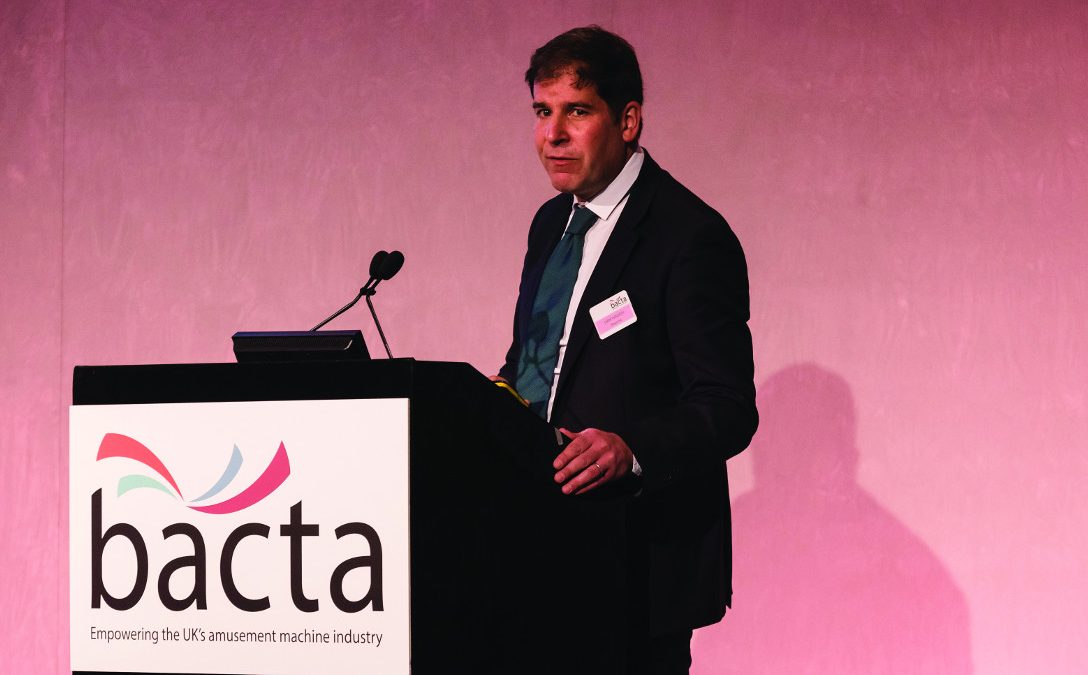Regulus Partners’ Dan Waugh details the current state of the FOBT debate in the consultancy firm’s ‘Winning Post’ blog, suggesting where “future battle lines will be drawn” for the gambling industry.
What will we do for amusement once (if?) the public policy wrangle over FOBTs is resolved? Last week opened with renewed hope for the betting shop sector as The Times reported a Treasury veto on reducing maximum stakes on machines in betting shops to as low as £2 a spin. Twenty-four hours of spluttering outrage later, the same paper revealed that the Chancellor of the Exchequer, Philip Hammond, had decided that his bacon rather than the bookies was in greater need of salvation and had given DCMS the green light to do their worst (or best, depending upon one’s outlook).
We have been here before with stories of face-offs between the two halves of Number 1 Horseguards and it seems plausible that the suggestions of Treasury lobbying are deliberately planted in order to elicit the shrill whistle of parliamentary indignation.
If that indeed was the intent, it seems to have worked. The Conservative MPs, Sarah Wollaston (Cons, Totnes), Tom Tugenhadt (Cons, Tonbridge and Malling) and Nick Boles (Cons, Grantham & Stamford) took to Twitter to voice their opposition to anything other than a £2 stake. Wollaston, who chairs the Parliamentary Select Committee on health and social care tweeted: “I will not be supporting any moves that allow high stakes #FOBT to continue to destroy lives. The Treasury needs to look at the long term financial & personal cost of the catastrophic harms to individuals, families & society.”
The trio of concerned Conservatives were joined, perhaps significantly, by David Evennett (Cons, Bexleyheath and Crayford) – who had a brush with gambling policy during his stint of maternity cover for Tracey Crouch in 2016. Evennett tweeted: “Strongly support a maximum stake of £2 for FOBTs and hope the Government acts soon”. Within 24 hours Crouch had replied to her colleague’s PQ by promising resolution “in due course”.
Conservative MPs have shown conspicuously less anxiety about gambling policy than their Opposition peers – just two (Sir Peter Bottomley of Worthing West and Fiona Bruce of Congleton) have signed EDM 174 on FOBTs compared with 24 from Labour and 13 from the SNP. However, in recent weeks a number of Tory backbenchers have raised concerns about the potential for a ‘soft’ Government response on FOBTs.
The Campaign for Fairer Gambling now claims the support of 23 MPs from the blue corner. That “support” could ultimately take the form of vote abstention rather than rebellion (in the event that DCMS opts for a £20 or £30 maximum stake) but the parliamentary mathematics are such that the Government will weigh such displays of concern carefully in the balance.
In what generally appeared to be a bad week in politics for the betting sector, The Times also featured a cross-party love-in between the recently elected Deputy Leader of Welsh Labour, Carolyn Harris (Lab, Swansea East) and former Tory Leader, Ian Duncan Smith (Cons, Chingford and Woodford Green) on the need for a £2 stake maximum; and a follow-up from the bookie bashing bishop of St Albans, the Right Reverend Alan Smith.
We also observed the close (for the second time, following deadline extension) of the Labour Party’s consultation on gambling and mental health. Early indications of what HM Opposition may have learned so far were provided by a flurry of Parliamentary Questions from the party’s Deputy Leader, Tom Watson (Lab, West Bromwich East) who probed on adequacy of treatment provision for gambling addiction, funding for research and education and levels of thefts related to problem gambling.
Gambling operators are understandably focused on policy outcomes from the current review – but Labour’s joint Culture, Media and Sport and Health probe may give a good idea of where future battle lines will be drawn (and not simply if Labour wins the next election). In a world of uncertainty, one point about which we can be pretty confident is that the conclusion of the DCMS review of machine gambling advertising and social responsibility is unlikely to draw a line under industry controversy.




